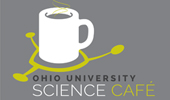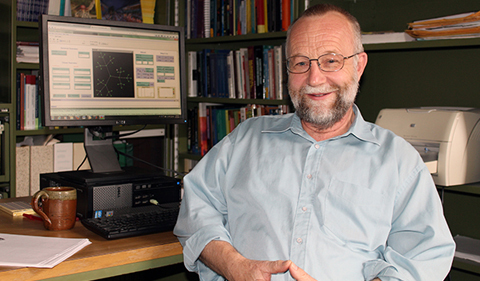Science Café presents Dr. Winfried Just on “Spread of Contagions: Diseases, Rumors and Mathematical Models” on Wednesday, Jan. 20, at 5 p.m. in the Baker Center Front Room.
 Imagine the scenario: An infectious disease outbreak has been reported. Epidemiologists furiously search for patient zero (the first infected person) and track cases of the outbreak. But the critical question is how can we effectively stop the spread of the disease? If the supply of vaccine is sufficient for only 5 percent of the population, will administering it make much of a difference?
Imagine the scenario: An infectious disease outbreak has been reported. Epidemiologists furiously search for patient zero (the first infected person) and track cases of the outbreak. But the critical question is how can we effectively stop the spread of the disease? If the supply of vaccine is sufficient for only 5 percent of the population, will administering it make much of a difference?
Could vaccinating the right group of people make a decisive impact? If so, how can we identify this group?
Just, Professor of Mathematics at Ohio University, says that mathematical models can be used to predict how many people will be infected under various scenarios.
“Everyone wants to know two things about infectious diseases: What can we expect in terms of their spread and how dangerous are these things?” he says. “Mathematical models can give us fairly good answers, but only if they take into account enough relevant details. Of particular importance here is the patterns of contacts during which transmission may occur. When we have realistic information about the contact etwork, we can make good predictions and decisions, such as who should be vaccinated. ”
Café events are free and open to students, faculty and staff. Café Conversations and Science Cafés are both venues for students to share their interests informally during a conversation exchange in a friendly setting. The Science Cafe is hosted by Dr. Sarah Wyatt, Professor of Environmental & Plant Biology and Vice President of the Ohio University Chapter of Sigma Xi. The two series are sponsored by the Ohio University chapter of Sigma Xi and the Office of the Vice President for Research. Find the Science Café on Facebook and Twitter.




















Comments